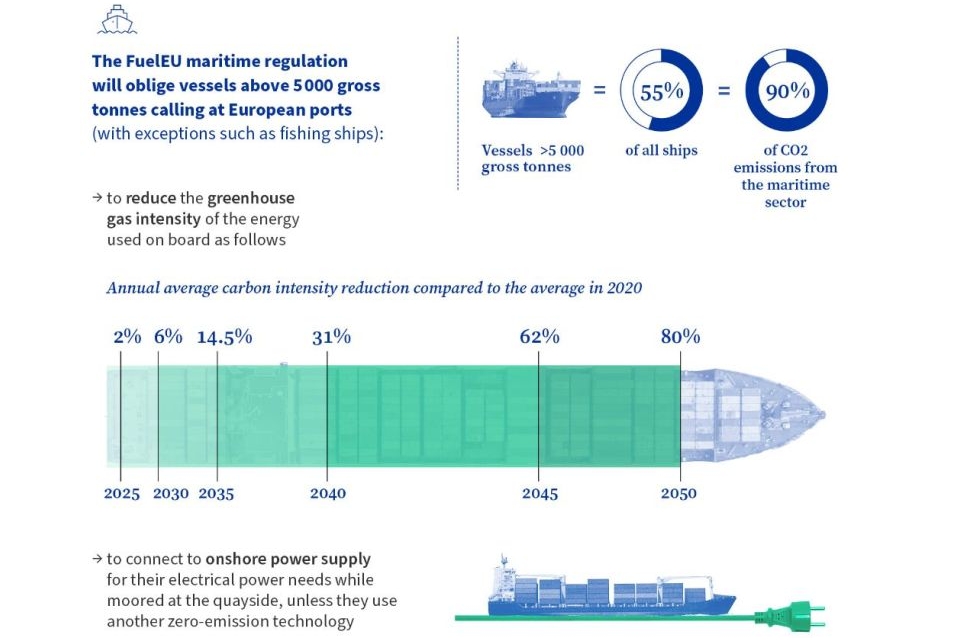The Waterborne Technology Platform welcomes the European Parliament and Council agreement to cut maritime transport emissions by promoting alternative fuels for shipping. According to the organisation, it now comes down to developing and delivering cost-efficient solutions.
On 23 March 2023, the European Parliament and the Council agreed on FuelEU Maritime – a new EU regulation ensuring that the greenhouse gas intensity of fuels used by the maritime transport sector will be gradually decreased over time, by two per cent in 2025 to as much as eighty per cent by 2050. The targets cover not only CO2, but also methane and nitrous oxide emissions over the full lifecycle of the fuels.
In addition, the new rules also introduce an additional zero-emission requirement at berth, mandating the use of onshore power supply or alternative zero-emission technologies in ports by passenger ships and container ships.
Also read: Jaap Gebraad to head Waterborne Technology Platform as secretary general
Goal-based approach
FuelEU Maritime takes a goal-based and technology-neutral approach, driving innovation and the development of new fuel technologies to meet future needs, and offering operators the flexibility to decide which to use based on ship-specific or operation-specific profiles. This approach is fully in line with the European Partnership on zero-emission waterborne transport, which focuses on developing and demonstrating zero-emission solutions for all main ship types and services by 2030.
The activities of the Partnership focus on the use of sustainable alternative fuels, electrification and energy efficiency. In addition, developing solutions for newbuild ships as well as retrofitting the current fleet, and taking into account the different needs of liner and tramp shipping are of prime importance.
Cost-efficient solutions
‘The production and use of alternative fuels in the waterborne transport sector will be key to achieving the objectives of the European Green Deal,’ says Eero Lehtovaara, Chair of the Board of Directors, Waterborne TP. ‘The FuelEU maritime regulation is a big step forward, and we will reflect it in our upcoming activities while cost-efficient deployment of the technologies and concepts will remain key also going forward. Research, development and innovation are crucial in developing and delivering cost-efficient solutions for a zero-emission future.’
Also read: The future of EU waterborne transport: carbon-neutral and competitive
Waterborne TP
Waterborne TP has been set up as an industry-oriented Technology Platform to establish a continuous dialogue between all waterborne stakeholders, such as classification societies, shipbuilders, shipowners, maritime equipment manufacturers, infrastructure and service providers, universities or research institutes, and with the EU institutions, including member states.
The members of Waterborne TP comprise members as well as associated members from both maritime and inland navigation countries, representing about nineteen member states. In addition, the associations member of the Waterborne Technology Platform represent the broader waterborne sector throughout the entire EU.
Picture by Jaap Gebraad, Secretary General Waterborne Technology Platform.








